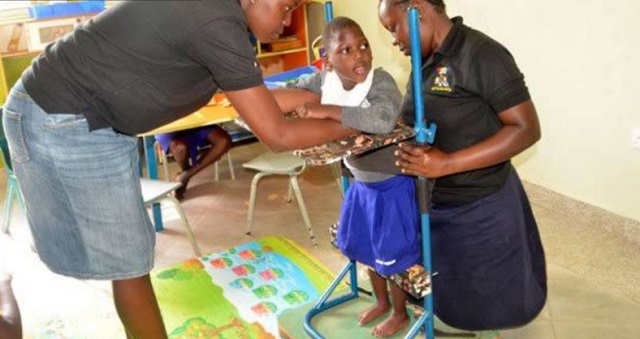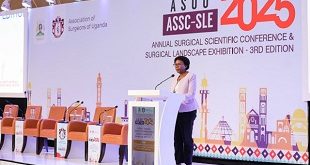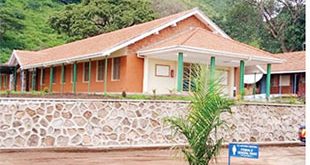
Awareness of the genetic malformation still low
Kampala, Uganda | PATRICIA AKANKWATSA | Down syndrome is one of those rare medical conditions and it’s not surprising that it is given minimal awareness even though there is a projected rise in the number of children being born with the genetic malformation.
Dr. Daniel Tumwine, a paediatrician at The Children’s Clinic in Naalya in Kampala says the lack of awareness of the condition starts at birth. He says health workers have not been formally trained to identify Down syndrome and affected newborns are subsequently not diagnosed until childhood.
“Health workers normally miss it at birth. They don’t look for it,” Tumwine says.
If the health workers or early child health givers looked keenly, there are signs of Down syndrome that they would see since most children with Down syndrome will have characteristic features.
They mostly have a short broad head, a short neck, a flat nose, slanting eyes, extra skin fold on their eyes, an open mouth with a protruding tongue and small ears. They may also have a prominent crease in the palm of their hands and a large gap between the large toe and second toe of their feet. They generally also have weak muscle tone.
Christine Asiimwe, a nurse at Children’s Clinic Naalya, attends to many children with Down syndrome. She says they also experience a number of complications and the commonest is intellectual disability.
“This may be mild or severe enough for the person to require assistance in daily living,” she says.
Half of all persons with Down syndrome will have a heart disease that may be curable if detected early. Many patients have a low immune system and tend to get a large number of ear and lung infections. They also have defective blood cells which make it easy for them to get frequent infections and blood cancers called leukaemia.
They also have hormone issues, particularly thyroid hormone which is important for proper metabolism of the body, and insulin hormone which prevents diabetes by controlling blood sugar.
Spotlight on causes
Down syndrome was in the spotlight recently with the marking of World Down Syndrome Day on March 21. That is the 21st day of the third month of the year. The numbers are significant because the UN chose them in recognition of the 3 copies of chromosome 21 that causes the condition.A chromosome is a thread-like structure found in the nucleus of all cells and carries genes.
Each human cell has 46 chromosomes, 23 from the father and 23 from the mother. These chromosomes pair up from number one to 22. The 23rd pair, the sex chromosomes, differs between males and females. However, a person with Down syndrome will have three chromosomes of chromosome 21 instead of two. This extra genetic material causes the developmental changes and physical features called Down syndrome.
Down syndrome is caused by a mistake in cell division during early development of the fetus. However, some parents have a higher risk of giving birth to children with Down syndrome. Women over 35 years old and men over 55 years old have a higher chance of getting a Down syndrome child. Also parents with a child with Down syndrome are at higher risk.
The UN declared March 21 World Down Syndrome Dayin 2011. In Uganda Down syndrome day started being marked in 2017 by the Global Living Institute and the Uganda Down Syndrome Association.
On October 06, 2016 The Global Livingston Institute (GLI); the initiative that advocates and creates awareness about Down syndrome, and the Global Down Syndrome Foundation (Global) announced a major joint initiative to map existing resources and services available to persons with Down syndrome and their caretakers living in Uganda.
“With proper training and care, a person with Down syndrome can grow normally and live longer,” says Sheila Gabeya, the Advocacy and Communications Manager at GLI.
Global Living Institute started working with Angels Centre for Children which handles younger children with Down syndrome. EmbraceKulture which handles older children and adults with Down syndrome and the Children’s Clinic Naalya which gives free health care to children living with Down syndrome in Kampala
Gabeya says the centres cater for all the medical needs of patients and help train the children.
 The Independent Uganda: You get the Truth we Pay the Price
The Independent Uganda: You get the Truth we Pay the Price



